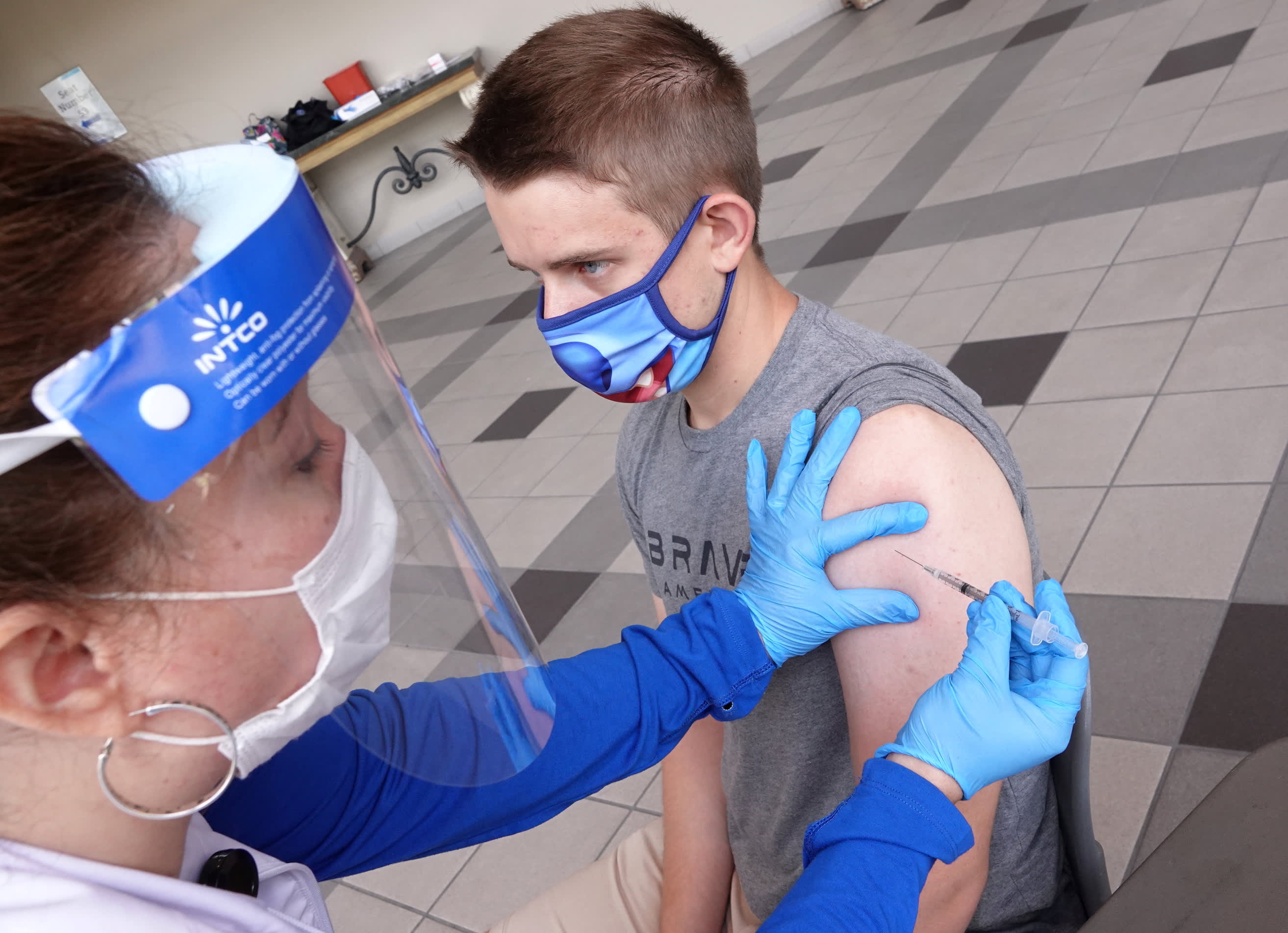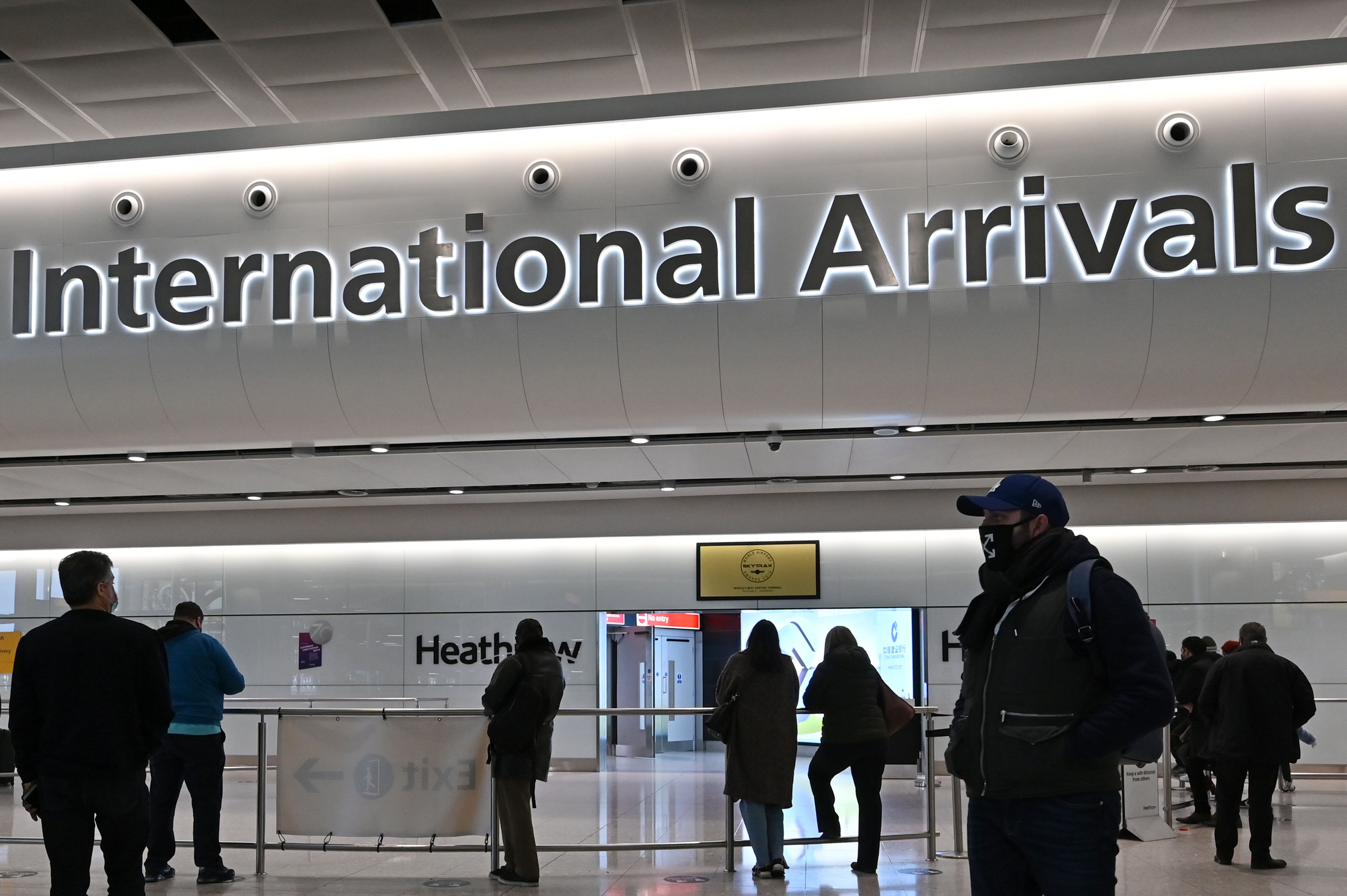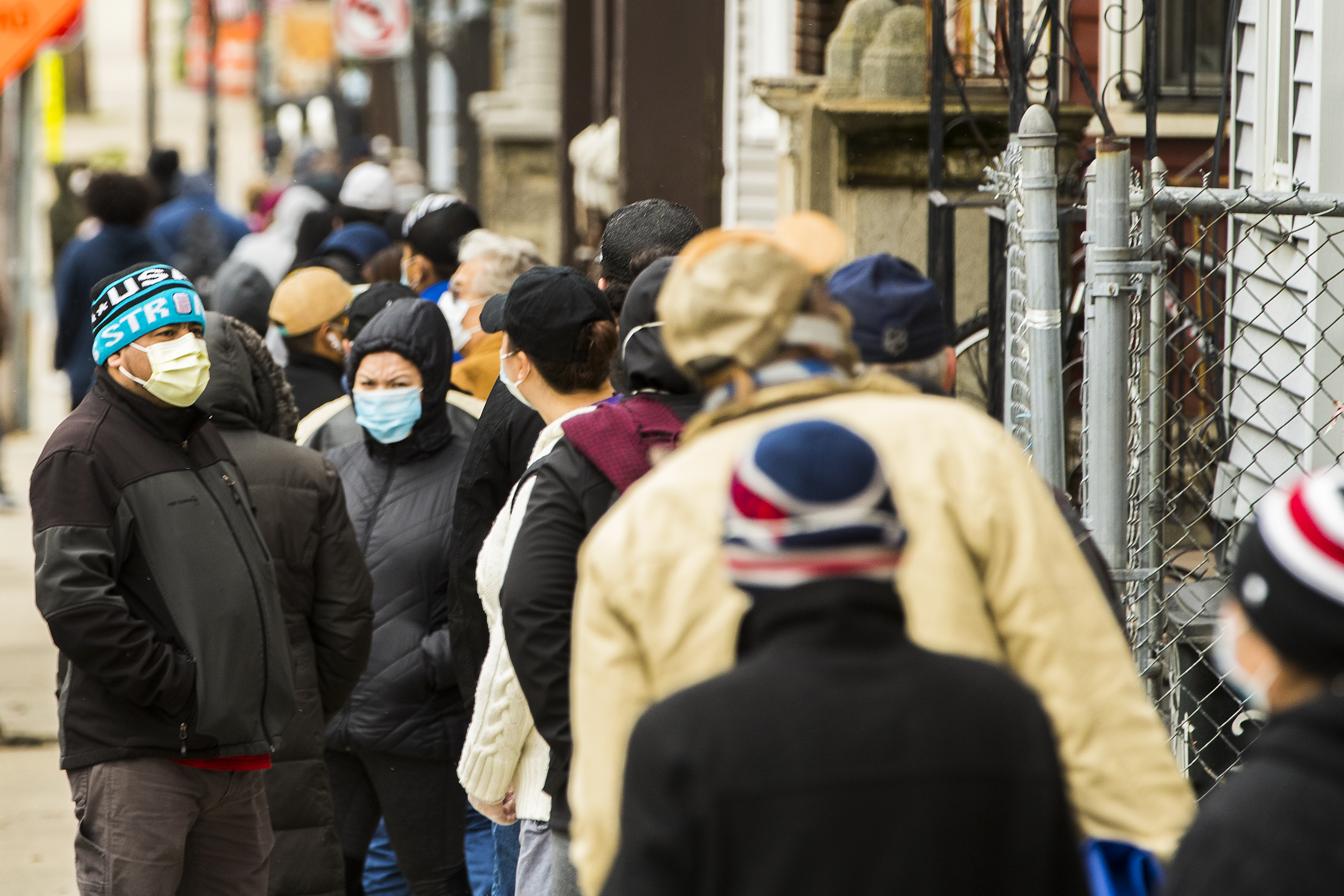The CDC now recommends masks being worn indoors in places with high transmission rates.
The CDC announced Tuesday that it was recommending fully vaccinated people begin wearing masks indoors again in places with high COVID transmission rates, a reversal of previous guidance. The agency is also recommending that school children wear masks this fall, though the guidance is not a mandate, and decisions will be left to the state and local level.
That left the governors of New England's six states scrambling to announce their own guidelines. Some states -- like Maine and Rhode Island -- have already announced new guidance based on the new CDC recommendations. Others say they're still mulling over the decision.
Here's a closer look at what all six New England states are doing:
Massachusetts
Massachusetts has five counties where federal health officials are now recommending that fully vaccinated people wear masks in indoor public settings, but Gov. Charlie Baker is not ready to make an announcement changing mask regulations in the state.
Asked Wednesday about the Centers for Disease Control and Prevention's announcement on indoor mask use in places with high COVID transmission rates, Baker said he and his administration are reviewing the guidelines and will have more information later.
He said he was "considering" a mask mandate in schools — which the CDC recommended Tuesday and which scores of medical experts and professionals requested later that day — but ruled out immediately "instituting any travel restrictions," when asked about the COVID cluster in Provincetown that's now grown past 830 people, and which has prompted a mask mandate in the Cape Cod tourist destination.
Baker noted that the CDC makes recommendations for the country at large, while Massachusetts is in one of the best positions of any state in the nation.
"The higher your vaccinated population is, the less likely you are to see significant increases in your hospitalization rates when you have increases in cases, and that's certainly true here in Massachusetts as well," Baker said.
In Massachusetts, Barnstable County is the only area of high transmission under the CDC's new COVID guidelines, while Bristol, Dukes, Nantucket and Suffolk counties are considered areas of substantial transmission.
New Hampshire
Gov. Chris Sununu said New Hampshire will not be issuing new mask guidance following the Centers for Disease Control and Prevention recommendation that even fully vaccinated people wear masks indoors in areas where COVID-19 transmission is substantial or high.
Four of New Hampshire’s 10 counties and the city of Nashua are experiencing moderate transmission, while the rest of the state is seeing minimal transmission, according to figures released by the Department of Health and Human Services.
“At this point, it isn’t about the government providing that bubble of safety around individuals,” Sununu said Wednesday.
Instead, he said it’s about the individual taking on personal responsibility.
“It is your choice,” Sununu said. “We have all the power to protect ourselves and the community, and that’s getting the vaccine. It’s safe. It’s easy.”
Connecticut
The Connecticut Department of Public health "strongly recommends" that anyone over the age of 2 wear a mask in public indoor spaces, regardless of vaccination status, in areas with significant COVID-19 transmission, per the latest Centers for Disease Control and Prevention guidance released earlier this week.
The latest DPH guidance strongly recommends that people who live in, work in, or visit Hartford, New London or New Haven counties follow the CDC guidance to wear a mask indoors regardless of vaccination status.
Last week Gov. Ned Lamont said the state has already been considering implementing new travel restrictions as the COVID-19 number trend up and the delta variant spreads, though no final decisions have been made.
Reiss noted that both Hartford and New London counties are close to the level described by the CDC for universal masking, though nowhere in Connecticut has yet reached the threshold.
"Even in states that have some of the lowest infection rates in the country, vaccinated people who are immunocompromised, otherwise considered high-risk, live with individuals who are high-risk or with unvaccinated children, may want to consider wearing masks in indoor public settings," Reiss wrote in a statement.
Maine
The guidance applies to everyone regardless of vaccination status.
York County, in far southern Maine, and Piscataquis County, in rural northern Maine, are two counties considered to have substantial levels of coronavirus transmission, Maine officials said. The other 14 counties are the site of moderate transmission, officials said.
Gov. Janet Mills encouraged everyone in the state to get vaccinated for coronavirus and wear face coverings in York and Piscataquis counties. She said the change in policy is a recommendation and not a requirement.
“We continue to strongly urge all people to protect themselves, their loved ones, and their communities by getting your shot. In the meantime, we recommend that Maine people follow the U.S. CDC’s updated public health recommendations,” Mills said in a statement.
Rhode Island
Top state leaders in Rhode Island on Wednesday recommended that all students, staff and faculty wear face coverings when schools fully reopen this fall.
The decision announced by Gov. Dan McKee, Education Commissioner Angélica Infante-Green, and Department of Health Director Dr. Nicole Alexander-Scott is in line with the CDC's new guidance, they said in a joint statement.
It comes as the highly contagious delta variant fuels a resurgence of the disease across the country.
"We strongly recommend that school districts set a policy that requires masking in schools this fall regardless of vaccination status in direct correlation with CDC guidance. Over the course of the summer, we will continue to monitor the CDC's guidance and update Rhode Island's guidance as necessary," the statement said.
Vermont
Vermont's mask guidance remains unchanged, largely because of the low level of COVID-19 transmission in the state, the Burlington Free Press reported.
The CDC's recommendation is "unlikely to impact Vermont greatly because of the state's low transmission rates," Health Commissioner Mark Levine said Tuesday. Levine did not make any comment about changes to Vermont's mask policy.




